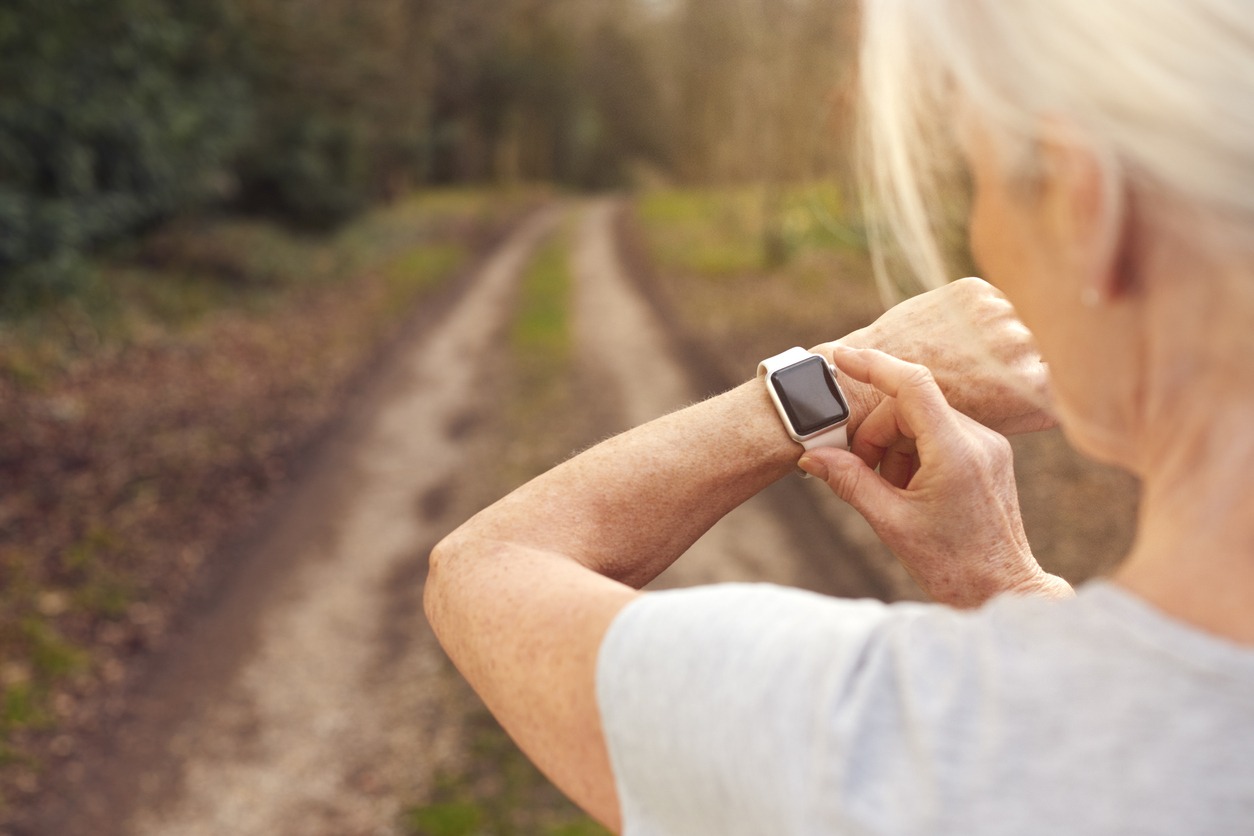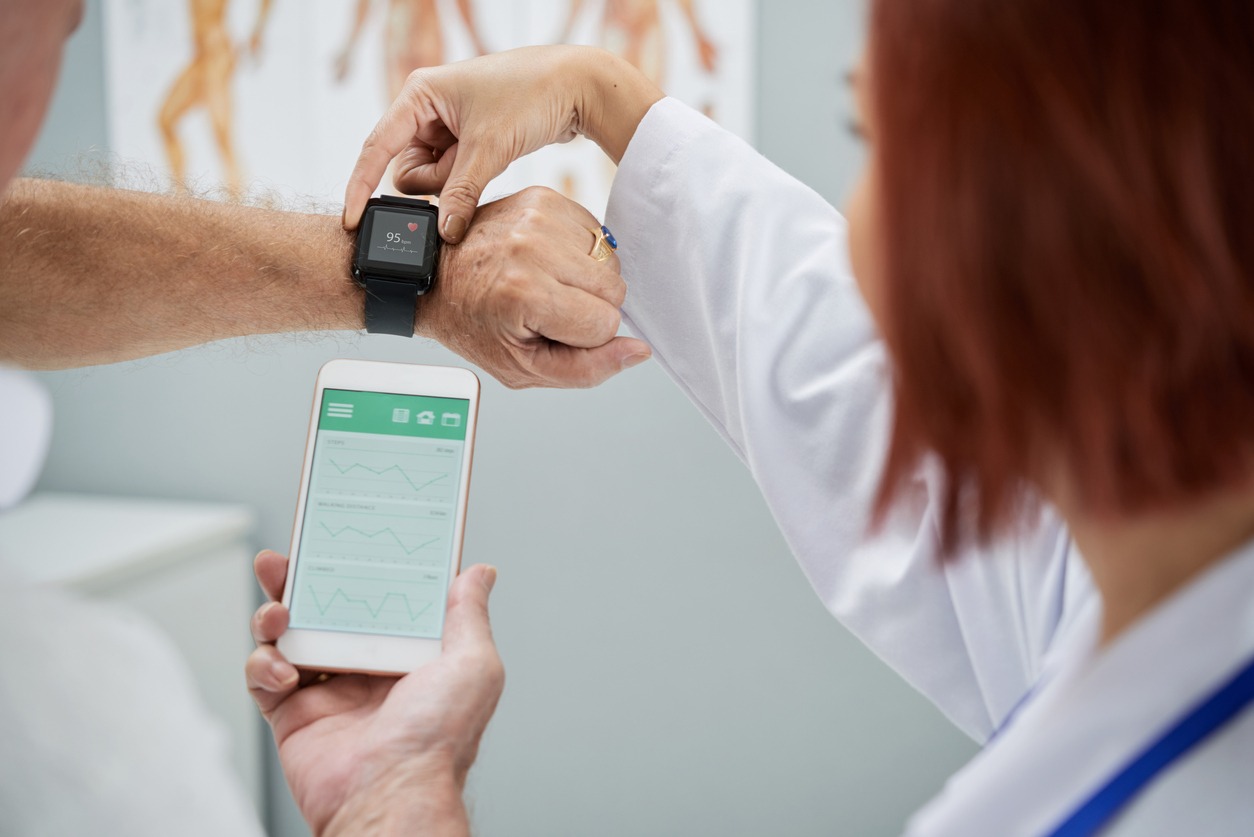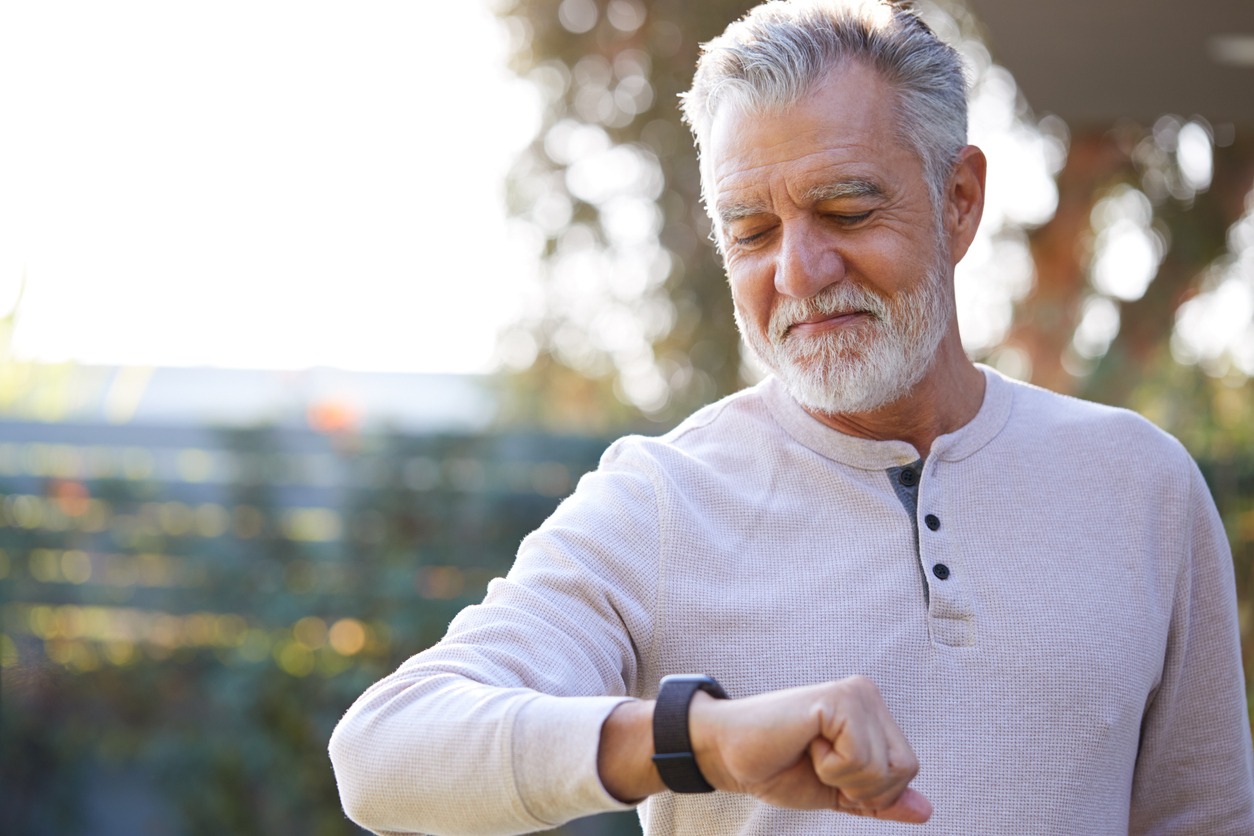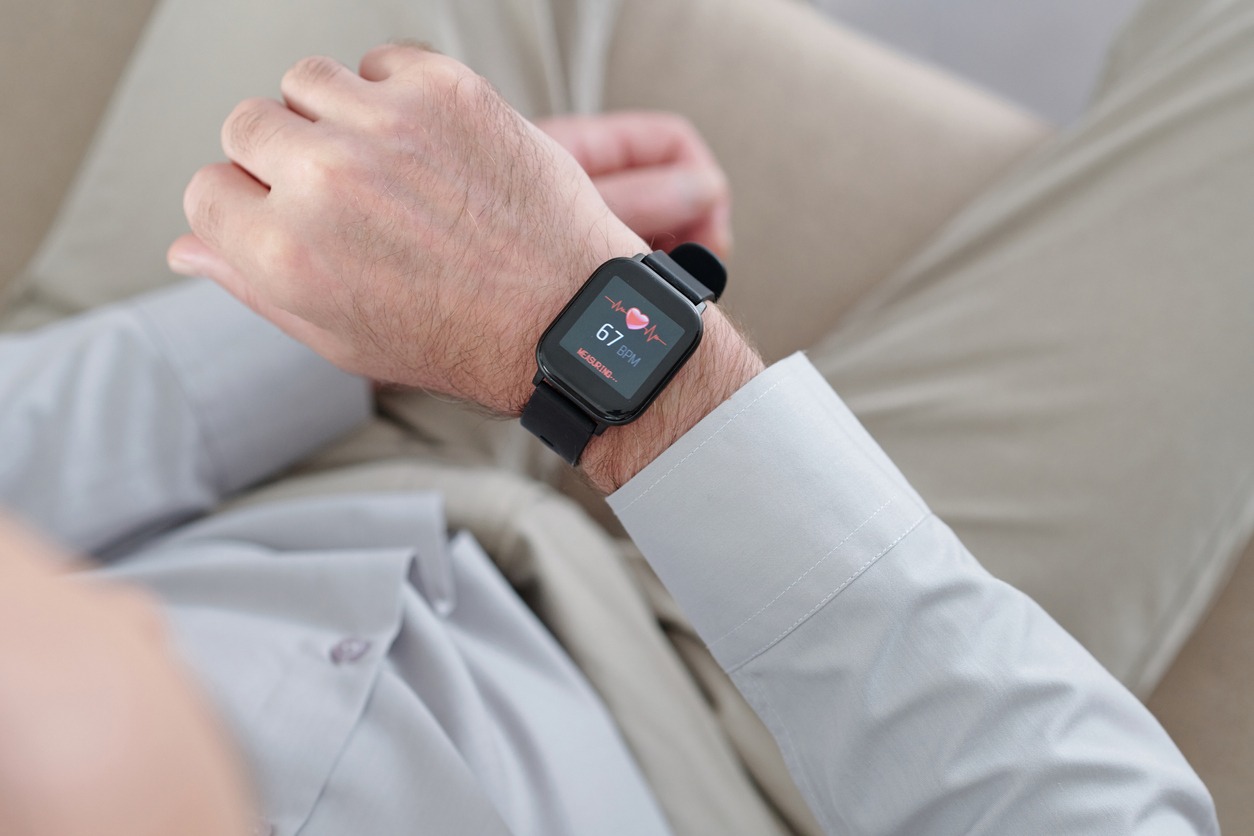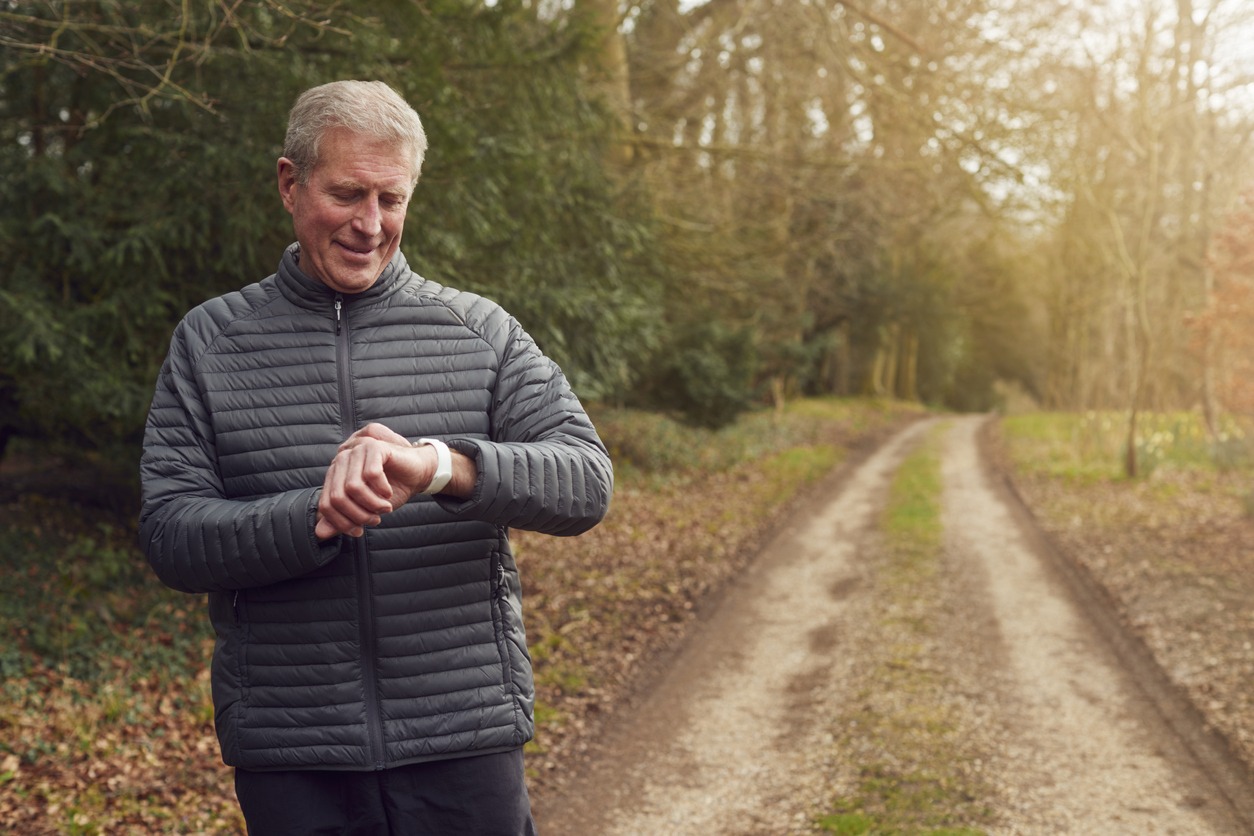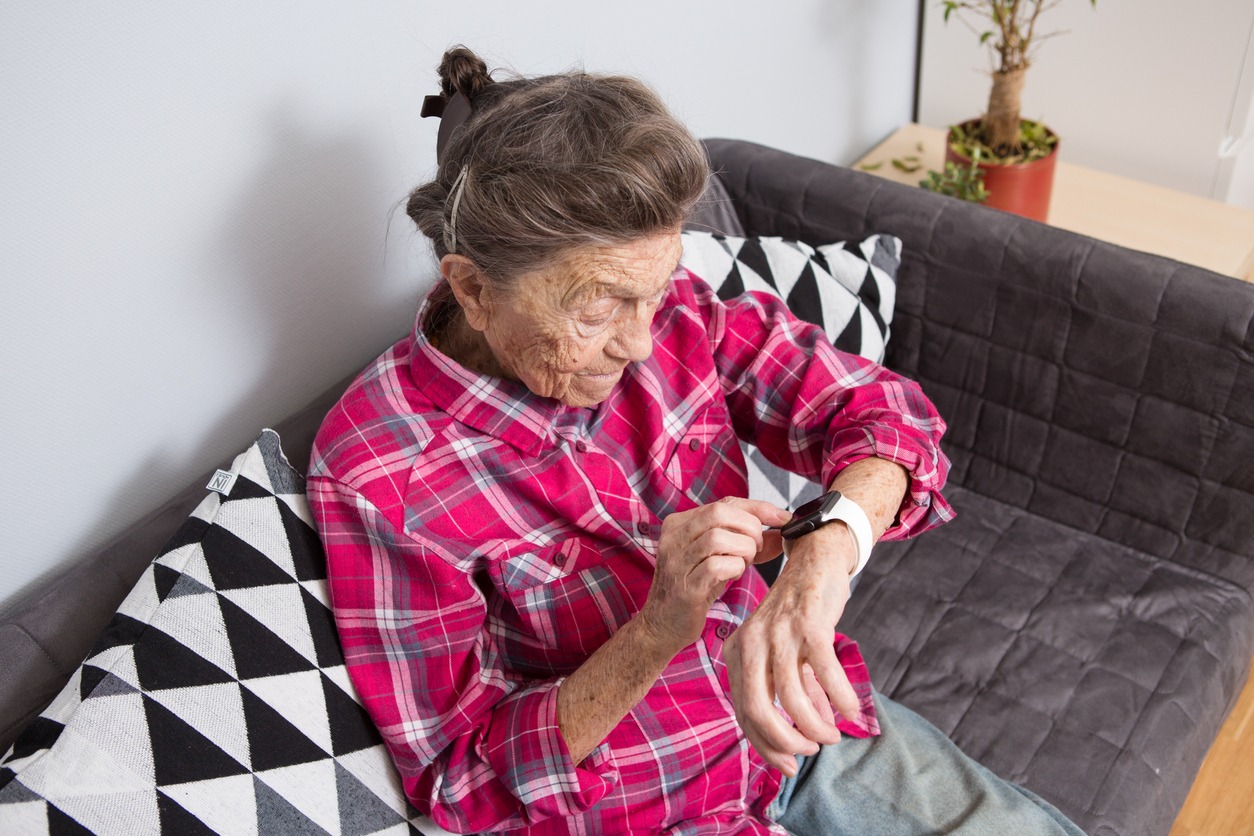Before, wristwatches were essential to tell the time. But at the present time, the use of wristwatches seems to have been replaced by more high-tech devices. In fact, some people no longer use them as they can check the time easily using their mobile devices. In addition to mobile devices like smartphones, a lot of people are also using smartwatches today. These devices are mostly used by those who are juggling a busy career and personal life. But do you think they can be helpful for seniors, too?
Smartwatch technology might be a bit daunting or complicated for anyone who grew up well before the digital age. In general, technology can feel overwhelming for seniors. That is why a lot of them avoid getting a smartphone or even a regular cell phone altogether. But it also makes sense to reconsider the role technology can play in their lives. Even though smartwatches are high-tech devices that are perfect for young people, they can also be an extremely convenient tool for navigating the challenges of aging.
In fact, older adults have now begun to appreciate the benefits of smartwatches to help them live healthier and happier lives. In 2015, a survey was conducted by the American Association of Retired Persons (AARP), and it showed 45% of the participating adults ranging from 50 years of age and above noticed their motivation to live a healthier life increased after using a smartwatch for six weeks, and 67% of them felt that the technology was globally beneficial.[1]
If you are taking care of a senior loved one, and you’d like to keep him or her as independent as possible, the use of a smartwatch might help. If you are wondering how then you’re in the right place. In this post, we are giving you the benefits of smartwatches for seniors.
What is a Smartwatch?
Before we discuss the benefits that smartwatches can provide to seniors, let us first understand what a smartwatch is. Basically, it is a portable device that is made to be worn on the wrist. Similar to smartphones, they feature touchscreens, offer apps, and can usually record heart rates and other vital signs.
Smartwatches are also often used by athletes and active people, as most of them offer features that are useful for workouts and other outdoor activities. Below are some of the main features that most smartwatches offer:
Notifications
Most smartphones display notifications from your phone. This is to alert you of important messages, events, or activities. But the types of notifications vary from one device to another. There are smartwatches that display notifications that only a wearable can give. An example is the fall sensor that Apple watches offer. This means that if you fall while wearing the watch, it will sense your subsequent movement. If there is no movement, it will send a series of escalating notifications. If the wearer fails to respond, the watch will assume you are injured and will alert authorities on your behalf.
Applications
Most smartwatches are only as good as the applications it supports outside of displaying notifications from a smartphone. App ecosystems also differ, depending on either Apple’s or Google’s environments. There are smartwatches that are specifically made for outdoor activities like hiking or diving, and these commonly support the apps they need to accomplish that purpose without the chance to add other kinds of apps.
Media Management
Some smartwatches that are paired with smartphones may also manage media playback. For instance, while listening to music on an iPhone using Apple AirPods, you may use an Apple watch to change the tracks and adjust the volume.
Fitness Tracking
A lot of smartwatches feature a heart rate monitor and a pedometer, which can help in tracking your workouts and other activities. However, for hardcore athletes, fitness bands are still a better choice than smartwatches.
GPS
Most smartwatches also include a GPS that can be used to track your location or receive location-specific notifications.
Good Battery Life
Modern smartwatches feature batteries that can get through the day with normal use. But battery use varies depending on the type of smartwatch. For instance, the Apple watch usually gets 18 hours of normal use on a single charge. But there are other smartwatches that can last for three days or more.
The Benefits of Smartwatches for Seniors
Based on statistics, 70% of seniors are now online and using technology.[2] Many of them are into using smartwatches. But why do you think smartwatches are beneficial for seniors? If you are also curious about this, below are the different benefits of smartwatches for seniors:
Smartwatches may provide seniors independence.
Losing independence is one of the most common concerns among seniors. This can make them feel frustrated, sad, and even depressed. But with help, most of them can enjoy different levels of independence in their later lives, which can bring a sense of accomplishment, joy, and confidence. That help may be in the form of a simple helping hand, living in an assisted care facility, relying on family or friends, or even through the use of a smartwatch.
There are smartwatches that can work well for seniors. These devices usually have options like reminders, alerts, and interfaces that are easy to use, which allow seniors to stay on task and stay in touch. These types of smartwatches can help them retain some of their independence. Aside from smartwatches, the use of cordless alarm systems may also provide seniors independence while giving caregivers peace of mind. To learn more about these, you may read our Guide to Cordless Alarm Systems for Caregivers.
Seniors can stay connected with their loved ones through the use of a smartwatch.
When a senior has a healthy social life, it provides lots of benefits for his heart and mind. Also, making and keeping strong social connections can help lessen loneliness and depression and increase a sense of belonging. If a senior can’t go out of the house that much, the use of a smartwatch may help him stay and feel connected. It’s because smartwatches have easy-to-use calling, texting, and emailing features. Text and voice alerts can be used easily by seniors to connect with their loved ones.
Most smartwatches also have audio assistance, which allows seniors to hear texts, emails, and voicemails from their family and friends. They also have voice control that enables seniors to make calls and answer messages easily.
Smartwatches offer health monitoring, which can be helpful for seniors.
Most of the latest smartwatches can monitor the wearer’s vital signs. They have built-in heart rate monitors and an accelerometer that can detect a lack of motion to remind the wearer to move regularly. This feature is perfect for seniors to stay mobile. Some smartwatches can also track blood pressure levels, stress levels, blood sugar levels, and weight by connecting them wirelessly to other devices. Smartwatches can send alerts when their heart functions appear off, which can prevent seniors from having a heart attack.
Seniors may use smartwatches to send emergency alerts.
It is popular for seniors to wear panic buttons in the form of a bracelet or a necklace. When these buttons are pressed, they trigger an emergency alert to call a certain service center. However, some seniors do not like wearing these panic buttons as they are not fashionable. With this, wearing a smartwatch is a good alternative.
Smartwatches can even be worn by seniors even while they are showering, as most of them are water-resistant. While wearing the watch, they can trigger an emergency call manually. There are also some smartwatches that detect falls, which automatically trigger an alert to the right family member, caregiver, or emergency support center. Some smartwatches also include a SIM card that makes it possible for the senior to make calls away from home. The GPS function of the watch can send the location of the wearer to the caregiver or emergency service center.
Smartwatches can provide peace of mind to both seniors and caregivers when going outdoors.
There are some seniors who like to take their active lifestyle outdoors. In these instances, a smartwatch can be helpful for them to track where they are. This ensures them that even when they take an afternoon stroll, they will never get lost. They can also use smartwatches to track their step count, recall the routes they have taken, and see the routes as they go.
Also, wandering is a real concern for seniors who have memory issues. But GPS-enabled smartwatches can provide peace of mind to caregivers and family members with real-time GPS tracking and location. There are even smartwatches that can make a geofence or a “safe perimeter,” which will notify you in real time when the wearer steps beyond that specific area.
Cons of Smartwatches for Seniors
While there are many advantages that a smartwatch can provide seniors, like most things, there are also drawbacks. One example is that a smartwatch can be expensive, and some medical services for smartwatches incur extra fees. Also, if a senior has shaky hands, it might be challenging for them to use certain smartwatch features.
You also need to keep in mind that smartwatches only work if they are worn. There are times that seniors might forget to wear them after bathing or forget to charge them after use. But even if there are drawbacks to using smartwatches for seniors, the pros still outweigh the cons. In the end, smartwatches for the elderly can provide peace of mind to both seniors and families.
Aside from smartwatches, there are also other solutions if your loved ones like to wander. Learn more about these by reading our Guide to Selecting Wandering Solutions for People with Alzheimer’s, Dementia, or Special Needs.
Things to Consider When Choosing a Smartwatch for Seniors
If you are thinking of buying a smartwatch for your senior loved ones, it is important to consider their individual needs. Doing this will help you find the best option for them. To help you, below are some of the important things to consider when choosing a smartwatch for seniors:
User-Friendly Interface
When buying a smartwatch for an older adult, make sure that you pick one that is easy to set up and use. It is better if you can pick a watch with a system that a person is already familiar with from their phone or tablet. For instance, if your senior loved one is using an iPhone, their experience might enhance their ability to adapt to a device that operates with similar technology, such as an Apple watch.
Communication Preferences
If the priority of the senior in using a smartwatch is to connect and keep in touch with family and friends, then it is important to look for a device that can send and receive messages and calls. It is also important for them to have extra data storage and phone syncing capabilities.
Health and Wellness Concerns
Regardless of price, some smartwatches offer basic health monitoring features, such as step counters and sleep trackers. But higher-end ones can offer more, such as monitoring heart rhythms and keeping tabs on blood oxygen levels, among other advanced features. Therefore, it is essential to know the needs of your senior loved one in order to pick a smartwatch with the right health features.
Size, Weight, Comfort, and Wearability
Before buying a smartwatch, it is important to verify the weight first. Some smartwatches emphasize sleek and lightweight designs. Make sure to choose one that has the right size and is comfortable to wear. If you are buying online, reading reviews to learn about any possible issues with a smartwatch’s fit or band can be helpful.
Safety Features
If safety is your main concern when buying a smartwatch for older adults, then it is important to choose a watch that offers lots of safety features for them. Some of these may include fall detection, emergency medical alerts, and precise GPA tracking. It is also best to pick a device that has well-supported apps that are not prone to crashing and can seamlessly sync to any device.
Conclusion
Smartwatches can indeed be beneficial for seniors. But it is also true that they may find the amount of information and the technology quite intimidating. Therefore, if you are going to give them a smartwatch, you also need to be prepared for questions about how these devices work and the benefits that they will get from wearing one. It is important to listen to the features that they want and also the ones they are not interested in.
Overall, seniors can benefit from the safety and well-being features that smartwatches offer. But like any device, it is still about finding something that offers specific features that will meet a senior’s unique needs and preferences. We hope this post helped you learn more about how smartwatches benefit seniors.
In addition to smartwatches, there are also other smart devices that seniors may benefit from. To learn more about these, you may read our Guide to Smart Home Devices for Seniors.
References
[1] Jean-Chretien, N. (2021, April 19). All you need to know about smartwatches for seniors. Digital Health Central. Retrieved February 3, 2023, from https://digitalhealthcentral.com/2021/02/24/smartwatch-for-seniors/
[2] Bethesda, N. (2021, June 24). Is a smartwatch a good gift for a senior? Bethesda Health Group. Retrieved February 3, 2023, from https://bethesdahealth.org/blog/2020/10/27/is-a-smartwatch-a-good-gift-for-a-senior/

